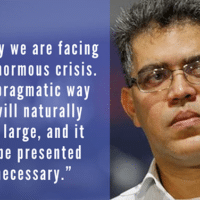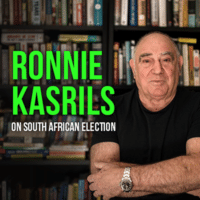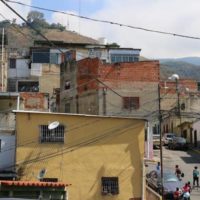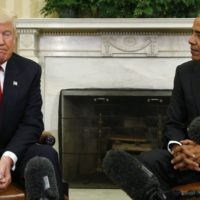-
Money on the Left: Confronting Monetary Imperialism in Francophone Africa
Ndongo Samba Sylla on the history of political economy in pre- and post-colonial Africa, the theoretical bases and political stakes of the anti-CFA Franc movement, and how Modern Monetary Theory (MMT) ought to inform current and future efforts to restore political and economic sovereignty to West African nations.
-
Defending Chavez’s project today
I began to work directly with Comandante Hugo Chavez in May 1996. By that time, Chavez was already exploring the idea of participating in elections.
-
The Yellow Vests of France: six months of struggle
What if they succeed? We know what the ‘success’ of structured parties like Syriza in Greece and Podemos in Spain led to. Maybe a horizontal federation of autonomous base-groups attempting to re-invent democracy could do better.
-
Scientists against the machine
Jane Shallice examines the history of radical research at the British Society for Social Responsibility in Science.
-
Ronnie Kasrils on South African election
As the curate said, assessing a none-too-fresh boiled egg at breakfast: ‘It was good in parts.’
-
Imperialism, a Marxist understanding
Imperialism benefits imperialist governments and corporations, but also the mass of the populations in the powerful countries. The marxist perspective explains how.
-
The plot to kill Venezuela
Vijay Prashad looks at the purpose and impact of sanctions against Venezuela.
-
The great work
This isn’t really capitalism as we used to know it. My father and mother had a restaurant. That’s capitalism. What’s taken over now is big corporate capitalism.
-
We are the shadow-ghosts, creeping back as the camp fires burn low
Professor Sandra Díaz, who teaches in Argentina’s National University of Cordoba and is the co-chair of the IPBES report, said that although bio-diversity and eco-diversity are ‘declining fast’, ‘we still have the means to ensure a sustainable future for people and the planet’.
-
“There is no alternative” to managing the economy and the climate
The United States is the country most easily positioned to address climate change but it has done likely the least out of any rich country. China, a country significantly less wealthy than the United States, has likely done the most. In fact, a recent study provides some evidence that China’s carbon dioxide emissions peaked in 2013 and are declining in large part due to changes in China’s industrial structure, which includes pilot programs for pricing carbon, among many other things.
-
The propaganda multiplier: how global news agencies and western media report on geopolitics
In this case study, the geopolitical coverage in nine leading European newspapers was examined for diversity and journalistic performance using the example of the Syrian war.
-
Warnings of ‘Gulf of Tonkin 2.0’ as Trump officials blame Iran for oil tanker attacks
It’s obvious that Bolton and Pompeo are trying to create a Gulf of Tonkin incident with Iran.
-
Making excuses for unemployment: The myth of a “skills gap”
The current labor force participation rate of prime age workers, those 25-54 years, is a case in point. It remains below the previous peak rate in 2008, and even further below the peak rate at the turn of the century. We would need an additional 1.2 million employed prime age workers to match the 2008 labor force participation rate and 2.5 million more to match the turn of the century rate. Still it appears that at the present moment unemployment is no longer a major political issue.
-
Guaido Requests U.S. military ‘cooperation’ to oust Maduro as U.S. vessel violates Venezuelan waters
A meeting between Guaido’s team and the U.S. Southern Command is being organised.
-
Pasqualina Curcio: ‘Hyperinflation is a Powerful Imperialist Weapon’
“Unilateral coercive measures…[directed by the U.S. against Venezuela] affect the entire population in a deliberate and systematic manner. That is why, in accordance with the Rome Statutes [of the International Criminal Court], they are crimes against humanity.”
-
Venezuela’s crisis: a view from the Communes
Federico Fuentes explores grassroots communal organisation, and the tension between popular power and sectors of the government.
-
Could this be the most Marxist film ever made?
Can a film be true? More to the point, can a film about capitalism avoid being recuperated by the system as just another commodity to make money for the culture-industry? Predictably, Riley sides with Marx, who said: “The question whether objective truth can be attributed to human thinking is not a question of theory but is a practical question…. Philosophers have hitherto only interpreted the world in various ways; the point is to change it.”
-
Trump continues Obama’s war on whistleblowers, arrests another alleged Intercept source
This outrageous explosion of watchlisting — of monitoring people and racking and stacking them on lists, assigning them numbers, assigning them ‘baseball cards,’ assigning them death sentences without notice, on a worldwide battlefield — it was, from the very first instance, wrong.
-
Note from USA: The A to Z of the American Police State
What characterizes American government today is not so much dysfunctional politics as it is ruthlessly contrived governance carried out behind the entertaining, distracting and disingenuous curtain of political theatre. And what political theatre it is, diabolically Shakespearean at times, full of sound and fury, yet in the end, signifying nothing.
-
We have stolen his land. Now we must steal his limb
When the late South African artist Tito Zungu wanted to depict the world of the migrant labourer, he settled on the envelope. It was by infrequent letters that the migrant would be able to be in touch with family – letters dictated to professional letter writers at one end, which would be read out by professional letter readers at the other.




















